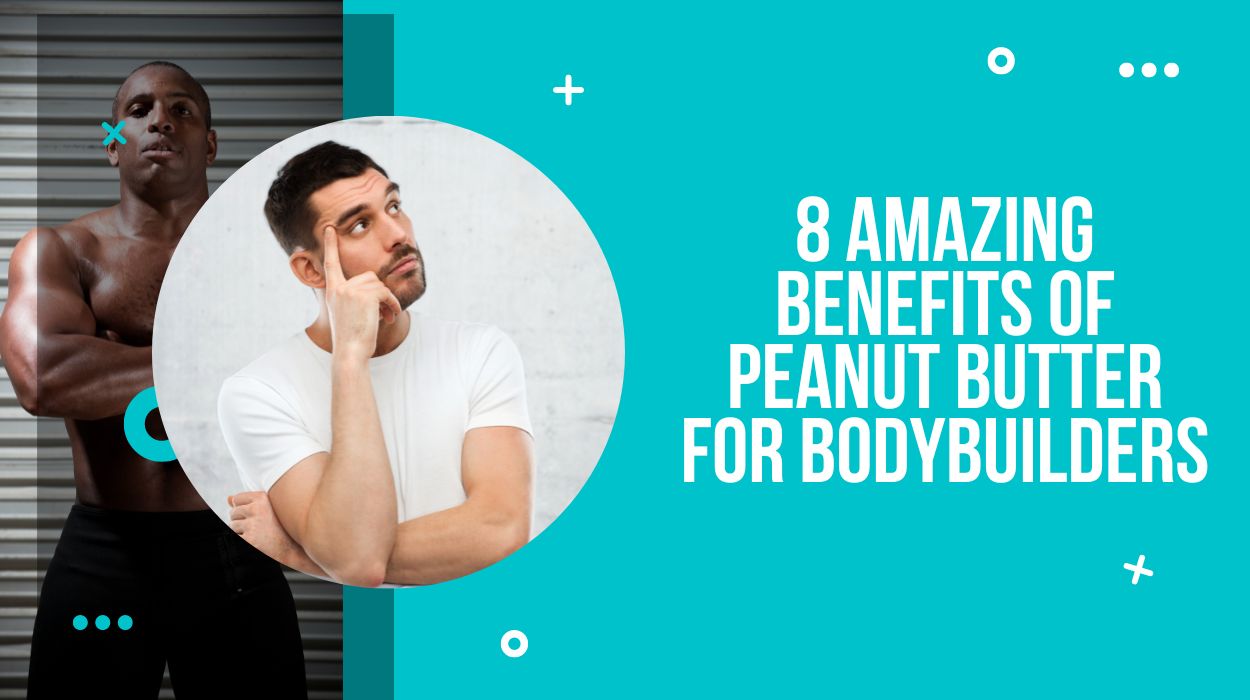Are you working out at the gym but not feeling or looking as strong as you wanted? A tweak to your diet might be the answer to this issue!
Muscle building requires both physical exercise and proper nutrition. Generally, we ignore the latter. Performing only one while neglecting the other could make our goals more difficult to achieve.
Suppose you plan on investing in an expensive weight-gaining whey protein to get the muscles you always wanted-you might want to reconsider! Did you know that there are 71% fewer carbohydrates in whey protein powder than in peanut butter!
Carbohydrates are required for muscle building! So to all those who want that muscle definition, say hello to your new best friend-PEANUT BUTTER.
Let’s look at how much peanut butter you need and what are the benefits of using peanut butter. We will also debunk some myths because complete knowledge is important, Isn’t it?
Peanut Butter Nutrition
The table below provides a detailed nutritional profile of 2 tbsp of peanut butter.
| CONSTITUENT | VALUE (Approx) |
| Proteins | 7.02 g |
| Saturated Fats | 3.05 g |
| Monounsaturated Fats | 6.63 g |
| Polyunsaturated fats | 3.63 g |
| Carbohydrates | 7.6 g |
| Fibre | 1.80 g |
| Calcium | 17 mg |
| Iron | 0.69 mg |
| Magnesium | 57 mg |
| Phosphorous | 107 mg |
| Potassium | 189 mg |
| Zinc | 0.85 mg |
| Sodium | 152 mg |
| Niacin | 4.21 mg |
| Vitamin E | 1.90 mg |
8 Reasons Why Bodybuilders Should Consume Peanut Butter
A healthy diet is essential for bodybuilders in order to support intense weightlifting and muscle definition. Try peanut butter, which contains fibre, healthy fats, and protein.
1. Supports The Health Of The Heart
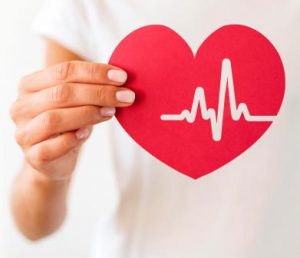
Many professional bodybuilders die in their mid-30s or early 40s due to heart failure and kidney and liver problems. A look at bodybuilding forums shows a long list of famous bodybuilders who died in their 30s and early 40s.
Studies have depicted an unquestionable link between the consumption of protein powder and heart muscle stress. When it comes to protein powder, it is very difficult to tell how much is good for the body!
The ratio of unsaturated fats to saturated fats in the diet is significant for cardiovascular health. Peanut butter also contains niacin, magnesium and vitamin E that can help keep the heart-healthy.
2. Can Make You Sleep Better

When it comes to muscle building, I always feel that sleep is often underestimated. After all, quality is more important than quantity when it comes to sleep.
There are 74 milligrams of tryptophan in two tablespoons of peanut butter, a precursor to the sleep hormone serotonin and melatonin. This makes it an ideal nighttime snack.
3. Nervous System Health
Magnesium is a mineral that is required for over 300 biochemical reactions in the body. The nutrient has been shown to aid in the treatment of headaches, muscle cramps, and fatigue.
Accordingly, peanut butter gives you around 15% of your daily magnesium needs in two teaspoons.
That means peanut butter can improve your body’s ability to regulate its temperature, detoxify, produce energy, make bones and teeth and maintain your nervous system.
4. Muscle Recovery
Peanut butter contains tons of potassium, which plays an important role in muscle health and recovery.
The nutty butter spread has 189 milligrams of potassium per two-tablespoon serving, which helps ease muscle soreness and cramps. That’s pretty common if you lift heavy or do an intense workout routine.
5. High In Protein
Muscle loss and weight loss are frequently associated. However, studies show that getting enough protein from foods like peanut butter can help you maintain muscle mass while dieting.
A tablespoon of peanut butter contains four grams of protein, making it an excellent source of protein for muscle building.
In one study, overweight men were assigned to either a high-protein or a low-protein weight loss plan. Though both groups lost roughly the same amount of weight, those who followed the high-protein diet lost about one-third less muscle.
Not only is muscle preservation important for maintaining strength, but it also aids in metabolism maintenance. In general, the more muscle you have, the more calories you burn throughout the day, even when you are at rest.
6. Fat Content
The fat content of peanut butter is a common source of concern. Compared to saturated fat, peanut butter contains more unsaturated fat. This means these fats are actually healthy.
Bodybuilders should aim for 0.5 grams of fat per pound of body weight, with monounsaturated fat accounting for roughly one-third of that.
The monounsaturated fat in peanut butter is 35 grams per 100 grams! So two heaping tablespoons would meet a bodybuilder’s daily monounsaturated fat requirement.
7. Testosterone Boost
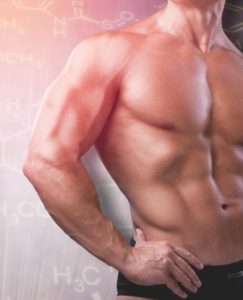
Several studies have found a link between testosterone and muscle gain. According to one of the articles published in ‘Livestrong’, peanut butter can help boost testosterone naturally.
The low sugar content and high-fat content promotes the release of testosterone. Because muscle growth is encouraged and muscle loss is avoided, peanut butter can help athletes tremendously.
8. Controls Sugar Levels
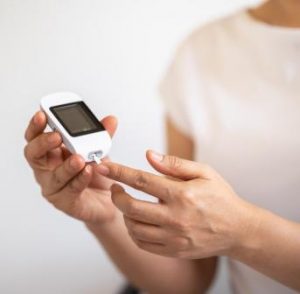
An item’s glycemic index (GI) is a way of measuring whether it’s good for the body with regard to blood sugar. A low GI food has a slower digestion rate and releases sugar slowly into the bloodstream. Peanuts rate 14 on the GI scale, making them one of the lowest GI foods.
That’s a cherry on top, isn’t it? A better grip on your sugar levels.
CAUTION!
Peanuts are delicious, versatile, and jam-packed with many essential nutrients. However, when buying peanut butter, you should consider the following three factors.
Look for a peanut butter product that contains only peanuts and few or no other ingredients.
Other ingredients may be present in some peanut butter brands, such as sugar, salt, and added oils. When at all possible, avoid these.
- Calories
Although peanut butter has numerous health benefits, it is also high in calories. The amount of peanut butter you should consume depends on your fitness goals, performance, and exercise routine. However, since it contains a lot of calories, you should be careful when eating it.
- Sugar
A peanut butter’s sugar content is an important consideration. Commercial peanut butter brands can contain up to 250 mg more sugar per tablespoon than natural brands. You might want to choose natural or organic butter.
- Sodium
In your peanut butter ingredients list, check the sodium content. Remember that natural brands typically have less sodium. Choose a peanut butter that contains 100 mg or less.
Let’s Debunk Some Myths
Let’s get started busting myths now.
Myth 1: Peanut Butter Contain Too Much Fat
It’s true that peanuts contain 14 grams of fat per 1 ounce serving; however, eighty per cent of that fat comes from healthier unsaturated fats. These fats can help keep blood vessels supple and reduce cholesterol.
Myth 2: You Can Never Get Over Peanut Allergy
Despite peanut allergies being among the most common food allergies, up to 20% of kids with peanut allergies outgrow the allergy over time. This is why it is so important to re-test those with peanut allergies regularly.
Myth 3: Peanut Butter Can Result Into Diabetes
A balanced diet and regular consumption of nuts may reduce the risk of type 2 diabetes. It has been reported that people who diet well and regularly consume peanut butter have better control over their sugar levels.
Myth 4: Peanut Butter Can Increase Your Cholesterol
Contrary to popular belief, peanut butter can help you lower your LDL cholesterol! Fortunately for peanut butter lovers, these creamy treats are relatively healthy. Including peanut butter in your diet will not harm your cholesterol levels.
Muscle-Building Peanut Butter Recipes
Do you dislike the taste of peanut butter but want to incorporate it into your diet? Maybe you like the taste of peanut butter but want to try something new with it! We’ve got you covered!
It is advised to consume two tablespoons of peanut butter. Here are two of my favourite muscle-building peanut butter recipes.
Peanut Butter Pancake
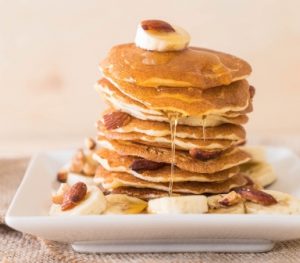
I know what you are thinking. A combination of two amazing things!
Ingredients
- Half a cup of flour
- 1 tablespoon of baking soda
- 2 tablespoons of peanut butter
- 6 ounces of milk
- 1 entire egg
Directions
- Mix and fold all the ingredients in a bowl
- Spray some oil on the pan.
- Add the batter to the pan and cook until bubbles appear.
- Continue to cook until the other side is light brown.
- Garnish with fresh fruits, honey, or maple syrup, and enjoy.
Peanut Butter Banana (PBB) Smoothie
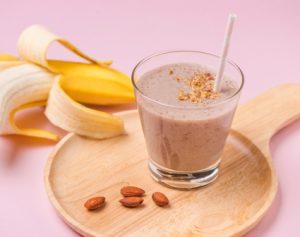
Would you rather have a drink than eating something? Here is a perfect 30-second fix for you!
Ingredient
- 2 bananas, cut into chunks
- 2 cups of milk
- 2 tablespoons of peanut butter
- 2 tablespoons of honey (Optional)
- 2 cups of cubed ice
Directions
- In a blender, toss the bananas, milk, peanut butter, honey, and ice cubes
- Blend them together for 30 seconds or until smooth.
- And there you have it. This is a real treat to drink!
You May Also Like To Read:
Peanut Butter: 5 Facts About Building Muscle And Losing Weight
15 Delicious And Healthy Ways of Eating Peanut Butter All Day Long
Summary
Peanut butter is a healthy snack that is ideal for athletes. Peanut butter helps you gain muscle and even burns fat. You can use them as a sugar substitute to cut back on unnecessary carbohydrates.
People who build their bodies have difficulty taking in the required calories due to a lack of time. Peanut butter can help them with this problem. A jar of peanut butter in your gym bag or office can provide you with more than a dozen grams of protein and a few hundred calories.
Peanut butter also provides quick protein following a workout when your muscles require it the most.
We would love to hear if you found this article useful! Don’t forget to let us know if you have tried any of the recipes.

